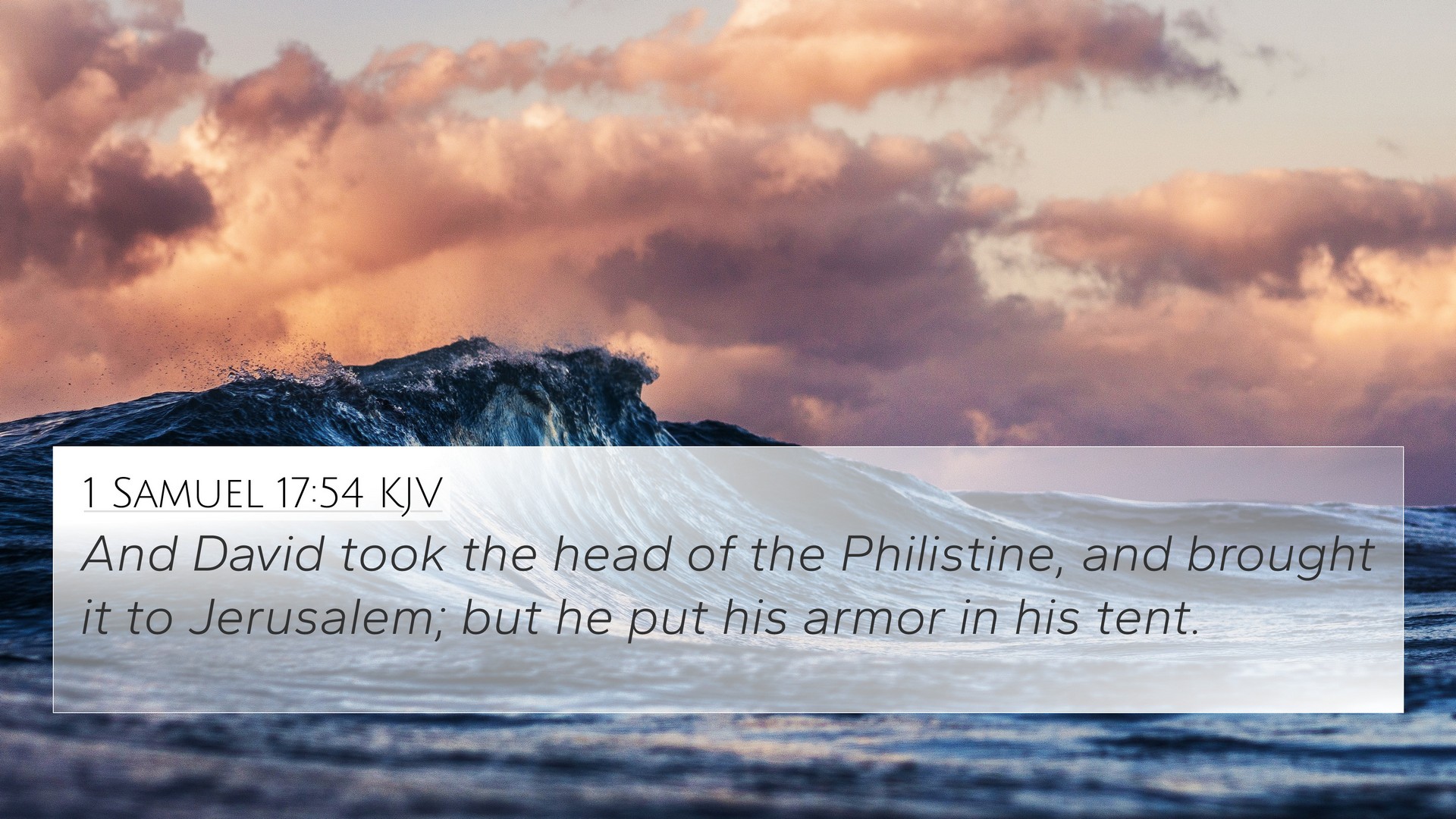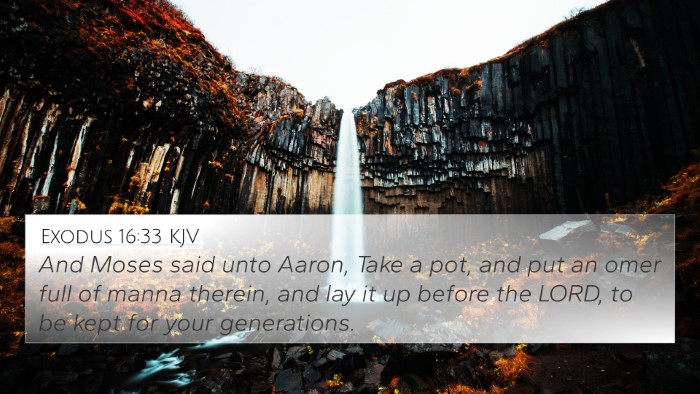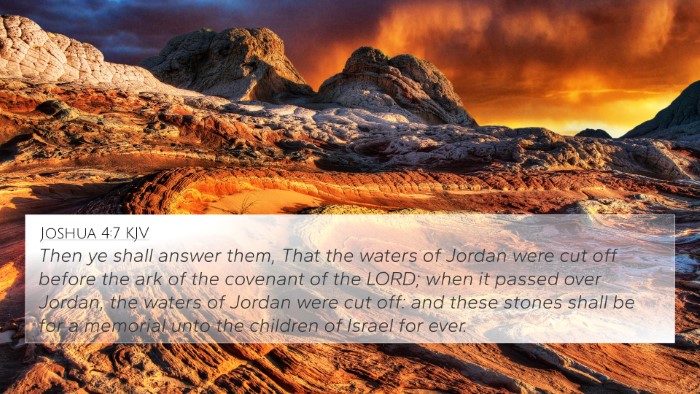Understanding 1 Samuel 17:54
1 Samuel 17:54 states:
"And David took the head of the Philistine and brought it to Jerusalem; but he put his armor in his tent."
This verse provides an important narrative detail following the victory of David over Goliath, emphasizing themes of triumph, faith, and God's providence. The significance of this verse can be understood through insights from various public domain commentaries.
Context and Historical Significance
According to Matthew Henry, the act of David taking Goliath's head is not just a demonstration of victory, but it serves as a symbol of God's deliverance over his enemies. This moment marks a pivotal shift in Israel's perception of David from a shepherd to a warrior, signifying his future role as king.
Albert Barnes comments on the historical implications of this act, highlighting that bringing Goliath’s head to Jerusalem was a demonstration of David's triumph that would inspire the Israelites and instill fear in the Philistines. It emphasized God's support for David and his anointing as future king.
Theological Implications
Adam Clarke points out that the mention of David putting Goliath's armor in his tent carries theological weight, symbolizing the spiritual might of faith over physical weapons. This act showcases David's reliance on God rather than human strength or military might.
Moreover, this moment in scripture establishes a precedent for how God uses the humble and seemingly weak (like David) to execute his plans against oppressors. This is echoed in other passages such as:
- 1 Samuel 16:7: "For the Lord sees not as man sees; for man looks at the outward appearance, but the Lord looks at the heart."
- Psalm 44:3: "For they got not the land in possession by their own sword, neither did their own arm save them: but thy right hand, and thine arm, and the light of thy countenance, because thou hadst a favor unto them."
- 2 Corinthians 12:9: "But he said to me, 'My grace is sufficient for you, for my power is made perfect in weakness.'"
Comparative Analysis and Cross-References
When conducting a comparative Bible verse analysis with 1 Samuel 17:54, several Bible verse cross-references stand out, showcasing connections between various scriptures:
- 1 Samuel 17:26: David's inquiry about the Philistine, revealing the importance of faith over fear.
- Psalms 20:7: "Some trust in chariots, and some in horses: but we will remember the name of the Lord our God."
- Isaiah 54:17: "No weapon that is formed against thee shall prosper..." - reaffirming God's protection.
- Luke 1:52: "He hath put down the mighty from their seats, and exalted them of low degree." - illustrating God’s reversal of worldly expectations.
- Romans 8:31: "What shall we then say to these things? If God be for us, who can be against us?" - emphasizing divine support.
- 1 Corinthians 1:27: "But God hath chosen the foolish things of the world to confound the wise..." - highlighting God's unconventional methods.
- Hebrews 11:32-34: Listing David among the heroes of faith, demonstrating the significance of his actions.
Final Thoughts and Application
The victory over Goliath illustrates that God can deliver us from seemingly insurmountable challenges. As Matthew Henry notes, this event should encourage believers to place their trust in divine strength rather than their capabilities.
When examining this verse in a broader biblical narrative, one sees a consistent theme of God's power manifesting through human weakness. The connections drawn from cross-referencing biblical texts reveal a tapestry of faith and victory throughout scripture.
For anyone seeking to deepen their understanding of 1 Samuel 17:54, using tools for Bible cross-referencing can aid significantly. By engaging in cross-reference Bible study, you can unearth the rich inter-Biblical dialogues that further illuminate God’s word.
This verse beckons believers to not only analyze David's victory but also to find personal application of faith, humility, and reliance on God. May our studies lead us to a deeper appreciation of the multifaceted relationship between scripture passages.
Keywords for Further Study:
- Bible verses that relate to each other
- Identifying connections between Old and New Testament
- Cross-referencing Psalms with New Testament teachings





